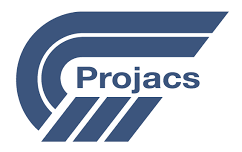
Creating Allyship in the Workplace Outlines
Course ID: 2512220101105ESH
Course Dates : 22/12/25 Course Duration : 5 Studying Day/s Course Location: London, UK
Language: Bilingual
Course Category: Professional and CPD Training Programs
Course Subcategories: Operations and Process Excellence
Course Information
Introduction
Allyship in the workplace has emerged as a critical component of fostering inclusive, equitable, and high-performing organizational cultures. As industries evolve to reflect increasingly diverse workforces, the need for intentional allyship becomes more pronounced. Allyship goes beyond passive support; it involves actively advocating for individuals from marginalized or underrepresented groups, dismantling systemic barriers, and creating environments where everyone feels valued and empowered. This course is designed to equip participants with the tools and frameworks necessary to cultivate allyship as a sustained practice within their professional ecosystems.
The modern workplace often grapples with challenges such as unconscious bias, microaggressions, and unequal access to opportunities. These issues persist despite widespread acknowledgment of the importance of diversity and inclusion. A key gap lies in translating awareness into action—many organizations struggle to move beyond performative gestures toward meaningful change. By addressing these gaps, this course leverages established theories such as social identity theory, intersectionality, and organizational justice to provide participants with a robust foundation for understanding the complexities of allyship.
Mastering the principles of allyship benefits both individuals and organizations. For employees, becoming an effective ally enhances interpersonal skills, builds trust among colleagues, and fosters a sense of belonging. Organizations, on the other hand, experience improved morale, increased retention rates, and enhanced innovation stemming from diverse perspectives. Companies like Salesforce and Microsoft have demonstrated how embedding allyship into corporate culture can drive significant business outcomes while strengthening employer branding.
Real-world examples underscore the transformative potential of allyship. Consider the case of a mid-sized tech company that implemented allyship training across its leadership teams. Within months, employee surveys revealed a marked improvement in perceptions of fairness and inclusivity, leading to higher engagement scores and reduced turnover. Similarly, anecdotal evidence from educational institutions shows that teachers trained in allyship create safer spaces for students, resulting in better academic performance and emotional well-being.
This course draws upon industry trends indicating a shift toward accountability in diversity efforts. Recent studies highlight that organizations prioritizing allyship report stronger collaboration and problem-solving capabilities. Moreover, regulatory frameworks around workplace equity are evolving globally, making it imperative for professionals to stay informed about best practices. Participants will leave equipped not only to navigate these changes but also to lead them effectively.
Ultimately, this program transcends traditional diversity training by emphasizing actionable strategies and measurable impact. It invites participants to reflect on their roles within their organizations and communities, encouraging continuous growth and advocacy. Through interactive sessions, case discussions, and practical exercises, attendees will gain the confidence to champion allyship as a cornerstone of professional excellence.
Objectives
By attending this course, participants will be able to:
Analyze the theoretical foundations of allyship, including concepts such as privilege, power dynamics, and intersectionality.
Evaluate personal biases and assumptions through structured self-reflection activities.
Design inclusive communication strategies that promote psychological safety in team settings.
Implement allyship practices tailored to specific workplace scenarios, using real-time feedback mechanisms.
Apply conflict resolution techniques to address instances of exclusion or discrimination effectively.
Assess organizational policies and initiatives for alignment with allyship principles.
Develop a personalized action plan to sustain allyship behaviors over time.
Who Should Attend?
This course is ideal for:
HR managers seeking to enhance diversity and inclusion initiatives within their organizations.
Team leaders and supervisors aiming to foster collaborative and equitable work environments.
Consultants and trainers specializing in organizational development and cultural transformation.
Educators and facilitators interested in promoting inclusivity in learning spaces.
These groups will find value in gaining practical tools to address systemic inequities and build cohesive teams. While prior knowledge of diversity concepts is beneficial, the course is suitable for beginners and intermediate learners alike, offering foundational insights alongside advanced applications.
Training Method
• Pre-assessment
• Live group instruction
• Use of real-world examples, case studies and exercises
• Interactive participation and discussion
• Power point presentation, LCD and flip chart
• Group activities and tests
• Each participant receives a 7” Tablet containing a copy of the presentation, slides and handouts
• Post-assessment
Program Support
This program is supported by:
* Interactive discussions
* Role-play
* Case studies and highlight the techniques available to the participants.
Daily Agenda
Daily Schedule (Monday to Friday)
- 09:00 AM – 10:30 AM Technical Session 1
- 10:30 AM – 12:00 PM Technical Session 2
- 12:00 PM – 01:00 PM Technical Session 3
- 01:00 PM – 02:00 PM Lunch Break (If Applicable)
- Participants are expected to engage in guided self-study, reading, or personal reflection on the day’s content. This contributes toward the CPD accreditation and deepens conceptual understanding.
- 02:00 PM – 04:00 PM Self-Study & Reflection
Please Note:
- All training sessions are conducted from Monday to Friday, following the standard working week observed in the United Kingdom and European Union. Saturday and Sunday are official weekends and are not counted as part of the course duration.
- Coffee and refreshments are available on a floating basis throughout the morning. Participants may help themselves at their convenience to ensure an uninterrupted learning experience Provided if applicable and subject to course delivery arrangements.
- Lunch Provided if applicable and subject to course delivery arrangements.
Course Outlines
Foundations of Allyship
Understanding Privilege and Power Dynamics
Introduction to Intersectionality and Its Relevance in the Workplace
Exploring Unconscious Bias and Microaggressions
Group Activity: Identifying Barriers to Inclusion
Day 2:
Building Self-Awareness
Conducting Personal Bias Audits
Reflective Practices for Continuous Growth
Emotional Intelligence and Empathy Development
Case Study Analysis: Lessons from Industry Leaders
Day 3:
Communication Strategies
Crafting Inclusive Language Guidelines
Active Listening Techniques for Allyship Conversations
Navigating Difficult Dialogues Around Diversity
Role-Playing Exercise: Practicing Allyship Scenarios
Day 4:
Organizational Applications
Reviewing Policies Through an Allyship Lens
Embedding Allyship into Performance Metrics
Leveraging Employee Resource Groups (ERGs) Effectively
Workshop: Developing an Allyship Toolkit
Day 5:
Sustaining Allyship
Creating Long-Term Accountability Mechanisms
Measuring the Impact of Allyship Initiatives
Addressing Resistance and Pushback
Final Project: Presenting Personalized Allyship Action Plans



















































